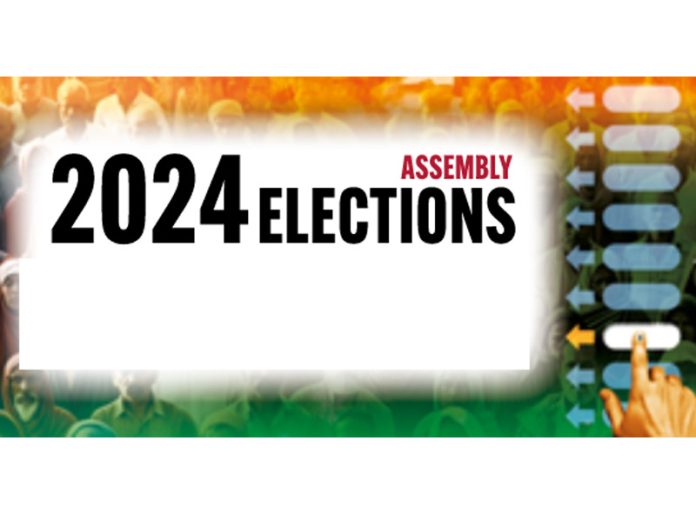The elections in Jammu and Kashmir have been nothing short of historic, marking a pivotal moment in the region’s political evolution. These elections, held after a decade and the abrogation of Article 370 in 2019, have reaffirmed the faith of the people in democracy. For the first time since the region’s reorganisation into a UT, voters from both Jammu and Kashmir divisions turned out in significant numbers to shape the political future of their region. The results on the expected lines reflect the region’s complex socio-political fabric. The NC emerged as the largest party, securing 42 seats in the 90-member Assembly. The BJP improved its previous tally by winning 29 seats, though it continues to struggle to make substantial gains in the Kashmir Valley. The Congress party, in alliance with the NC, has played a supporting role with not so substantial gains. The NC’s strong performance in the Kashmir Valley is a clear indication of the electorate’s preference for established regional parties that are deeply embedded in the region’s identity and politics. The NC’s ability to secure a substantial number of seats, particularly in the face of considerable political change, demonstrates its enduring appeal among the people of Kashmir. Despite challenges posed by the neutralisation of Article 370 and 35A, the NC has managed to reassert its relevance by maintaining a strong organisational structure and connecting with younger voters who have earnestly invested in the region’s political future. The NC-Congress alliance has proven effective in this election. By pooling their resources, the two parties have held on in key constituencies, ensuring a broader representation of local concerns in the new Assembly.
The BJP’s influence in Jammu has grown considerably, as evidenced by its strong showing in the region, with the party winning 29 seats, an improvement from its previous tally. However, the party’s ambitions of becoming a pan-regional force in Jammu and Kashmir remain unrealised. There is a stark political polarisation between the two regions, which is a critical challenge that the new Assembly will need to navigate. This regional polarisation is not new, but it has become more pronounced in recent years. The challenge for the new Government, therefore, will be to bridge this divide and ensure that both regions are represented fairly and equitably. This diversification of political representation could be both a strength and a challenge for the new Assembly. On one hand, it allows for a wider range of voices and perspectives, particularly those advocating for more localised concerns. On the other hand, it could complicate efforts to build consensus on key issues. The new Assembly, with its mix of old and new faces, has an opportunity to address the longstanding grievances of both regions. For Jammu, the focus is likely to be on continued development and infrastructure projects, which have been a central part of the last five years. In Kashmir, the issues are more complex. There is a clear demand for political empowerment, as evidenced by the strong support for the NC. Improving governance and addressing local issues will be at the top of the agenda for the new Government.
As Jammu and Kashmir moves into this new phase of its political journey, the focus must shift towards governance and development. The region’s economic and social challenges, exacerbated by decades of conflict and instability, require urgent attention. The elected representatives, regardless of party affiliation, must prioritise the well-being of the people over political rivalries. This will require collaboration, particularly between the NC and BJP, the two largest political forces in the Assembly. Both parties have a responsibility to respect the mandate of the people and work together towards inclusive governance. The failure to do so could risk further polarisation and instability, which would be detrimental to the region’s long-term prospects.
The NC-Congress alliance is poised to lead Jammu and Kashmir for the next five years. As aptly stated by the Chief Minister-in-waiting, Omar Abdullah, the people have done their part, and now the responsibility lies squarely with the newly elected Government to meet their expectations. It is undeniable that the absence of elected representatives has been deeply felt by the public in recent years. The inherent disconnect between bureaucracy and the populace is something that only local elected leaders can bridge. These representatives possess a thorough understanding of both the day-to-day struggles and the long-term needs of their constituencies.
Jammu and Kashmir has benefitted from considerable budgetary allocations in recent years, and there is every indication that the Central Government will be willing to go the extra mile to support further the legitimate aspirations of the entire region. Tourism, a vital sector, has shown signs of revival, and the momentum must be sustained. The focus must remain firmly on infrastructure development, enhancing the tourism industry, and, crucially, attracting investment and industries to the region. Tackling unemployment, a pressing issue should be treated as a priority.
The task ahead for the new Government will be challenging, but it also presents an opportunity to build on the foundation laid by this election. By focussing on governance, development, and unity, Jammu and Kashmir can move towards a more stable and prosperous future, one that reflects the aspirations of all its people. The new Government has little time to settle into its role, as public expectations are high. Much water has flown down Chenab and Jhelum, and with so much that has changed in recent years, past divisions must be put aside for the sake of a brighter future. The only viable path forward is one of development and progress.
Trending Now
E-Paper


